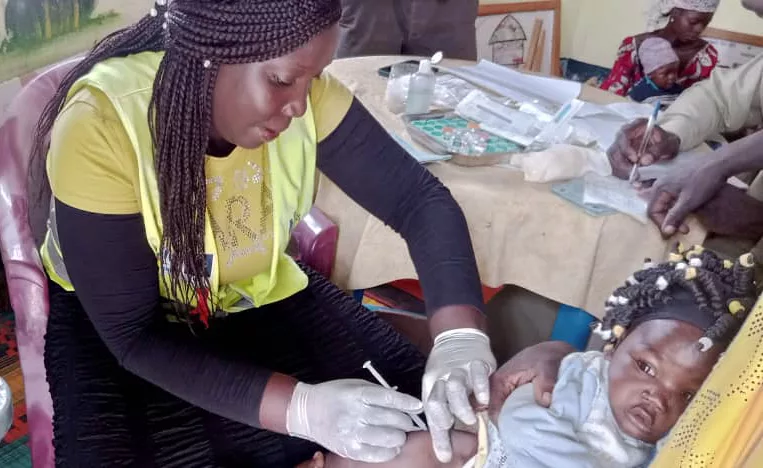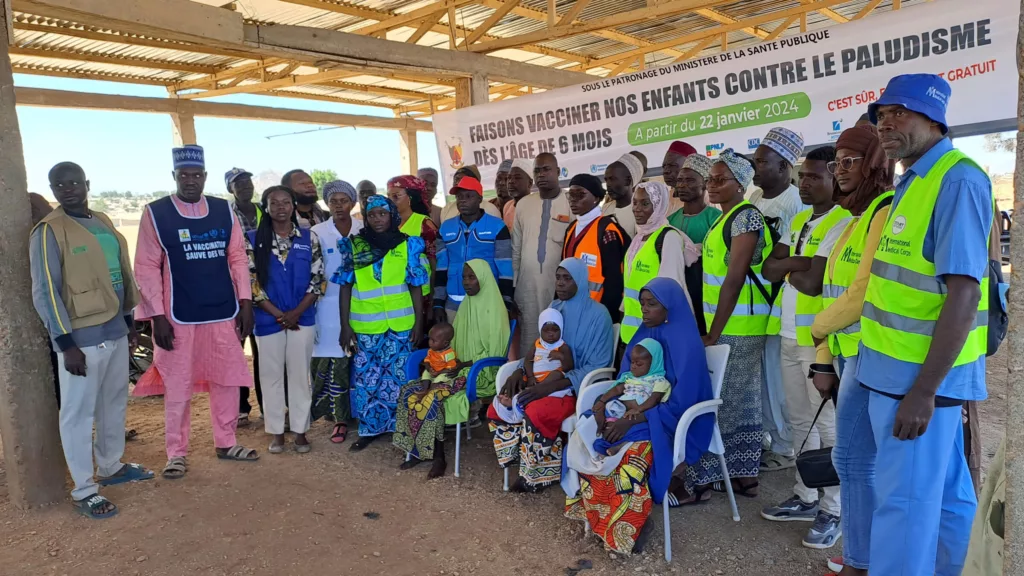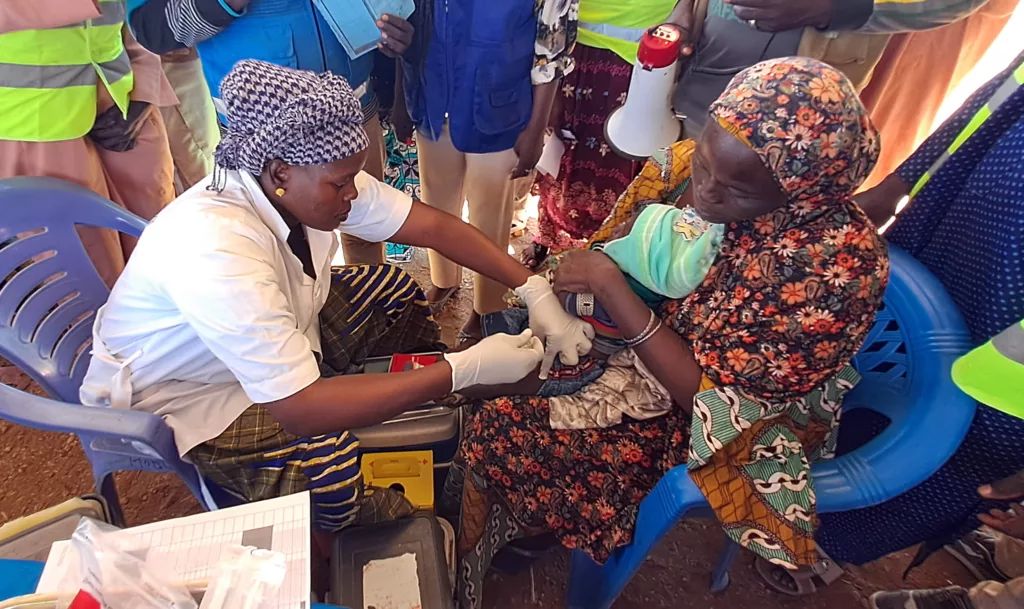Malaria is a life-threatening disease that causes neurologic problems and can lead to death if it goes untreated. Nearly half a million children under 5 die from malaria each year in Africa—roughly one death each minute. In Cameroon, the Ministry of Public Health (MoPH) recently began the world’s first routine immunization program against the mosquito-borne disease.
International Medical Corps is one of the partners implementing the campaign, providing lifesaving medication to the population of Minawao refugee camp and training MoPH staff and local volunteers to treat and identify the disease.
Why do we need a malaria vaccine?
For survivors, malaria can cause long-term neurologic defects, speech problems, blindness and deafness. Malaria treatment can be costly, especially for low-earning families whose children must stay home from school when stricken by the disease. The Centers for Disease Control and Prevention (CDC) estimates the direct costs—for example, from illness, treatment and premature death—is at least $12 billion per year.
Approximately 95% of malaria cases and deaths occur in Africa, where the warm climate promotes mosquito breeding and mosquitos reproduce at an extraordinary pace. In warm conditions with stagnant water, the Anopheles mosquito—which transmits malaria—lays up to 200 eggs at a time. Drug and insecticide resistance has also added to the challenge. Meanwhile, many African nations with strained healthcare systems are ill-equipped to respond to the disease without humanitarian assistance.

What is special about this new vaccine?
This malaria vaccine is the world’s first. Plasmodium parasites take multiple forms during their life cycle, which makes developing a vaccine against them unusually challenging. But after more than 50 years of research and development, scientists were finally able to create a vaccine to counter this health threat.
Trials show that the malaria vaccine can reduce severe cases among 5- to 17-month-old children by 30%—a significant amount. The United Nations Children’s Fund (UNICEF) expects that the vaccination campaign will reduce overall child deaths by 13% in targeted areas because the vaccine will both reduce deaths in which malaria is a contributing factor and deaths caused directly by the disease.
Health experts estimate that the world will need up to 60 million doses in 2026, so delivering the medicine to the affected communities will require a concerted, international effort. Plans are underway to make the vaccine affordable and widely available to meet this demand within the next couple of years.
Is malaria a concern in countries outside Africa, including the UK and the US?
Malaria is rare in the United States. In 2023, the CDC identified two cases of malaria that people contracted in Texas and Florida—the first documented cases of local infection in the US in 20 years. On average, the United States reports approximately 2,000 malaria cases every year. The average number of cases in the United Kingdom between 2012 and 2021 was 1,425 per year. In both nations, most cases involve people who contract malaria while traveling to tropical and subtropical locations—places where people have a much higher likelihood of contracting the disease.

Do I need to worry about malaria if I travel?
Travelers heading to Africa, Central and South America, parts of the Caribbean, Asia, Eastern Europe and the South Pacific should take precautions to avoid contracting malaria. Plan to use an Environmental Protection Agency-registered insect repellent, wear clothes that cover your arms and legs, treat your clothes and gear with permethrin and hang a mosquito net over your bed or sleeping bag. Review the CDC malaria-prevention guidance for more.
How does climate change affect the spread of malaria?
In addition to the economic challenges of fighting malaria, climate change is causing “mosquito season”—the period each year when mosquitos actively breed and feed—to last longer and the geographic range of parasite-carrying mosquitos (an area some call “the mosquito belt”) to grow. As the climate warms, it makes new areas of the planet habitable for Anopheles mosquitos. Meanwhile, flowing waters are predicted to dry up as temperatures rise, creating more areas of warm, standing water. As conditions that are ideal for mosquito reproduction grow, the number of insects carrying the Plasmodium parasite will also grow. Experts expect that urban areas with dense populations will be particularly vulnerable.
What is International Medical Corps doing to address malaria?
In countries where we operate, International Medical Corps provides a wide range of support to help the people we serve fight malaria—including vaccines, mosquito nets and medical supplies. And because training is at the heart of our mission, we also train health professionals on how to quickly identify and treat malaria cases, strengthening local health systems.
